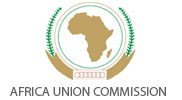Third Conference on Climate Change and Development in Africa (CCDA-III)
21-23 Oct, Addis Ababa, Ethiopia



Africa on the rise : can the opportunities from climate change spring the continent to transformative development?
Background
Africa’s economic progress since the start of the 21st century has been on a positive trajectory, underscoring the huge potential that the continent has to improve the welfare of its populations and lift millions out of poverty. At a macro level, many African countries have embarked on conscious economic and political transformation and are implementing strategies and programmes aimed at promoting economic growth, poverty reduction and general improvement of citizens’ welfare. However, sustaining the momentum would require African countries to studiously confront a number of challenges. Climate change represents a fundamental challenge to the sustainability of Africa’s growth momentum. It is imperative therefore that African countries invest in mechanisms that would mainstream climate change into their development strategies to stave off its possible negative impacts. Commensurate efforts must also be made to identify and exploit the opportunities that climate change presents. To achieve this, there must be a concerted effort by all key players. Climate and social scientists, development economists, policy makers and users of climate information must all work in tandem to design innovative strategies.
The 4th Assessment Report of the Intergovernmental Panel on Climate Change (IPCC), for instance, showed a warming across the continent between 0.2° and 0.5°C per decade up to the year 2100. This change in the climate will also come with more frequent events such as storms, floods, sea level rise or droughts. The last Special Report on Extreme Events (SREX) of the IPCC stresses the importance of addressing the vulnerability in Africa of key sectors including agriculture, food security, water supply, energy, security, migration, health, and biodiversity. The low adaptive capacity of Africa contributes to its high vulnerability. The capacity of African countries to address these challenges is compromised by lack of adequate technology, weak social infrastructure, conflicts and poor institutional arrangements.
The Third Climate Change and Development in Africa (CCDA-III) conference presents an opportunity for stakeholders to deliberate on Africa’s development in a context of climate change. It is an annual conference, organised under the auspices of Climate for Development in Africa (ClimDev-Africa), a joint programme of the African Union Commission (AUC), the United Nations Economic Commission for Africa (UN-ECA) and the African Development Bank (AfDB). The programme seeks to address the need for improved climate data and information for Africa as well as to strengthen the use of such information for decision-making by supporting analytical capacity, knowledge generation and sharing.
The previous two conferences, CCDA-I and CCDA-II, both had the theme of advancing knowledge, policy and practice on climate change and development. They each created forums for dialogue that raised awareness on the importance of climate change, its impacts on development, and the nexus between science, policy and practice. CCDA-III will be held in Addis Ababa, Ethiopia, from October 21 to 23, 2013 at the United Nations Conference Centre. The theme for the conference is ‘Africa on the Rise: Can the Opportunities from Climate Change Spring the Continent to Transformative Development?’. This theme captures the urgency of the need to mainstream climate change in development policy planning, programming and implementation. The imperative is clear. Climate change is a threat and an opportunity.
Africa is on a transformative development pathway. How can African countries build resilience to climate change and exploit the opportunities it presents to move away from the detrimental energy inefficient development pathways of the past? To this end, CCDA-III brings together participants from communities of research, policy and practice to share results of innovative and provocative research and policy analysis and to question and debate alternative pathways in the areas of economics, politics, and governance.


